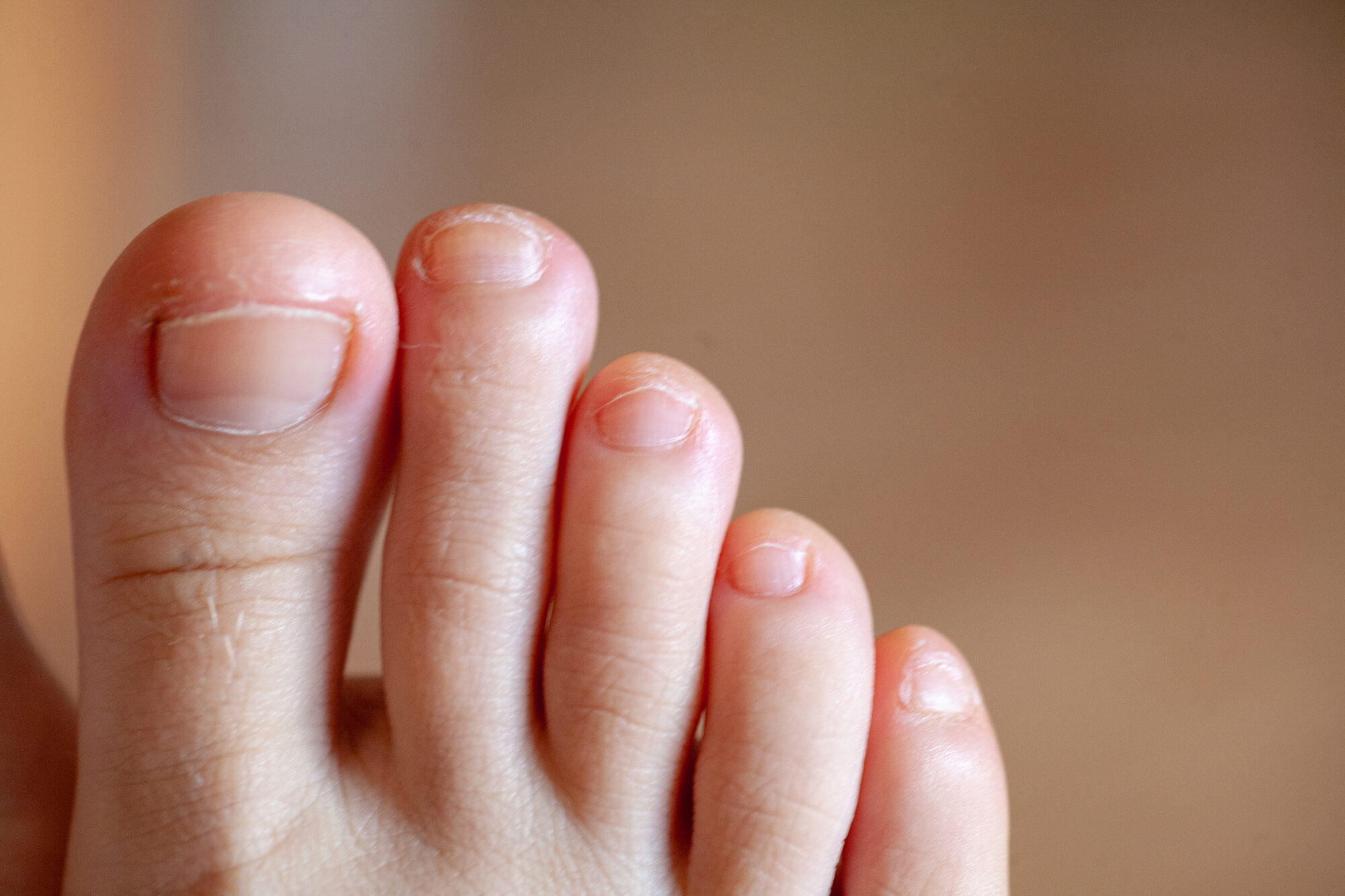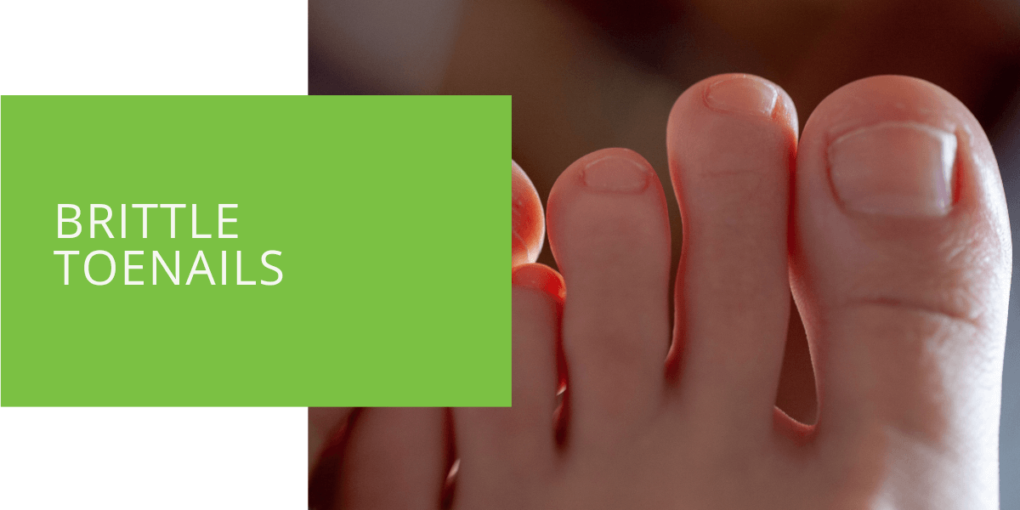Understanding Brittle Toenails
Do you find yourself struggling with brittle toenails? You're not alone. Many people suffer from this frustrating and often uncomfortable condition that can impact their feet' appearance and health. However, understanding the root causes of this issue can help you take the first step toward achieving healthy, resilient toenails.
In this guide, we'll dive deeply into brittle toenails, exploring everything from what causes this condition to how to prevent and treat it effectively. From dietary changes and lifestyle modifications to topical treatments and professional interventions, we'll cover all the bases so you can make informed decisions and take control of your foot health. So, whether you're dealing with brittle toenails already or looking to take preventive measures, join us on this journey to unlock the secrets of healthy, beautiful feet.
Key Takeaways
- Brittle toenails can result from various causes, including nutritional deficiencies, excessive nail polish use, fungal infections, and underlying medical conditions like hypothyroidism or psoriasis.
- Prevention and maintenance strategies such as a balanced diet, avoiding harsh chemicals, proper nail care, and moisturization can help maintain healthy toenails.
- Seeking professional care, considering biotin supplements and topical solutions, and addressing underlying health conditions are effective ways to treat brittle toenails and promote their health.
What Are Brittle Toenails?
Brittle toenails are a condition where nails lose their natural strength and resilience, making them vulnerable to various problems, such as splitting, cracking, or breaking. Although brittle nails can affect both toenails and fingernails, our primary focus here is on toenails. Understanding the distinctions between these two types of nails is crucial because their causes and care may differ.
Causes of Brittle Toenails
To comprehensively understand and manage brittle toenails, we must explore the many factors contributing to their development. Identifying these causes is the pivotal initial step in effectively preventing and treating this common nail issue.
Nutritional Deficiency
One of the primary causes of brittle toenails is a deficiency in essential nutrients, particularly biotin or iron. These nutrients are the building blocks of healthy nails. When our bodies lack them, it can weaken the structure of our nails, making them more prone to brittleness.
Excessive Use of Nail Polish
Frequent application of nail polish, especially those containing acetone-based removers, can strip the nails of their natural oils. This leaves them dry, dehydrated, and ultimately brittle. Mindful use of nail polish and employing proper removal techniques are essential to maintain nail health.
Fungal Infections
Fungal infections can significantly affect both the nail bed and the nail itself, causing them to become brittle, discolored, or even split. Recognizing the symptoms of fungal infections and seeking prompt treatment is crucial for addressing this issue effectively.
Underlying Medical Conditions
Certain underlying health conditions, such as hypothyroidism or psoriasis, can directly impact nail health. These conditions disrupt the normal nail growth process, leading to brittle toenails. Managing and treating the root causes of these health conditions is essential for improving the condition of your toenails.
Signs and Symptoms
Recognizing the signs and symptoms of brittle toenails is pivotal for early intervention and effective management. Keep an eye out for the following indicators:
- Nails that easily break or split.
- Nails that appear thinner than usual.
- The presence of vertical splits or cracks in the nail.
- Discoloration or the appearance of white spots on the nails.
- Dry and peeling cuticles.

Prevention and Maintenance
Preventing the development of brittle toenails and maintaining their health requires a proactive approach. Here are comprehensive tips for prevention and maintenance:
Balanced Diet
A balanced diet rich in biotin, iron, and other essential nutrients is crucial for nail health. These nutrients are the foundational building blocks for strong and healthy nails. Including eggs, nuts, and leafy greens can significantly contribute to nail strength.
Avoid Harsh Chemicals
Limiting the use of nail polish and nail polish remover, especially those containing acetone, is essential. Opt for gentler alternatives that are less likely to strip your nails of their natural oils. Being mindful of the products you use on your nails can substantially impact your health.
Proper Nail Care
Proper nail care is a crucial aspect of preventing brittleness. File your nails in one direction and avoid excessive filing, which can weaken them. Maintaining your toenails at a moderate length can also prevent excessive stress that may lead to brittleness.
Moisturize
Regularly applying a nourishing lotion or cream to your nails and cuticles is essential. This helps keep them hydrated and prevents dryness, a common cause of brittle toenails.
Treating Brittle Toenails
Several effective treatment options are available if you're already grappling with brittle toenails. Let's take a detailed look at these treatments:
Professional Care
Seeking professional care from a podiatrist or dermatologist is crucial for a proper diagnosis and a tailored treatment plan. These specialists can identify the underlying causes of your brittle toenails and provide targeted solutions based on your unique condition.
Biotin Supplements
In certain cases, biotin supplements may be recommended to strengthen the nails. Biotin, also known as vitamin B7, is vital for nail health and can help improve their strength and resilience when taken as a supplement.
Topical Solutions
Topical treatments such as nail thickeners or products containing lanolin can be beneficial in improving nail health. These products can be directly applied to the toenails, nourishing and strengthening them.
Address Underlying Health Conditions
If an underlying medical condition is responsible for the brittleness, addressing the root cause is essential. Conditions like hypothyroidism or psoriasis can significantly impact nail health, and managing these conditions is essential for improving the condition of your toenails.
Conclusion
The health of your toenails is intricately linked to your overall foot health. Brittle toenails can indicate underlying issues, ranging from nutritional deficiencies to medical conditions. By understanding the causes, recognizing the signs, and diligently implementing preventative measures, you can take proactive steps to ensure your toenails remain resilient and robust.
As experts in podiatry, we emphasize the utmost importance of seeking professional assistance when dealing with persistent nail issues. Do not hesitate to schedule an appointment with our experienced team to address concerns about your toenail health. We are here to provide personalized care tailored to your unique needs and to guide you toward strong, beautiful toenails that contribute to your overall well-being.Remember, with the right care and attention, you can achieve and maintain aesthetically pleasing but also healthy and functional toenails.
FAQ
What does it mean when your toenails are brittle?
When your toenails are brittle, they have become fragile and prone to splitting, cracking, or breaking. Brittle toenails can be a sign of various underlying issues affecting their health.
What deficiency causes brittle toenails?
A deficiency in essential nutrients, such as biotin or iron, can lead to brittle toenails. These nutrients play a vital role in maintaining the strength and structure of your nails.
How do you fix cracked brittle toenails?
To fix cracked, brittle toenails, it's essential to identify the underlying cause first. Depending on the cause, treatment options may include professional care from a podiatrist, biotin supplements, topical solutions, or addressing underlying health conditions.
Why do older people's toenails get brittle?
As we age, various factors, including changes in nail growth patterns and reduced blood circulation, can contribute to toenails becoming brittle. Proper nail care and attention to overall health become increasingly important to maintain nail health as we grow older.
How do you fix dry, brittle toenails?
To fix dry, brittle toenails, you can employ several strategies, such as moisturizing your nails and cuticles regularly, avoiding harsh chemicals like acetone-based nail polish removers, and ensuring a well-balanced diet rich in essential nutrients for nail health. If the dryness persists, seeking professional care from a podiatrist is advisable to identify and address any underlying issues.

